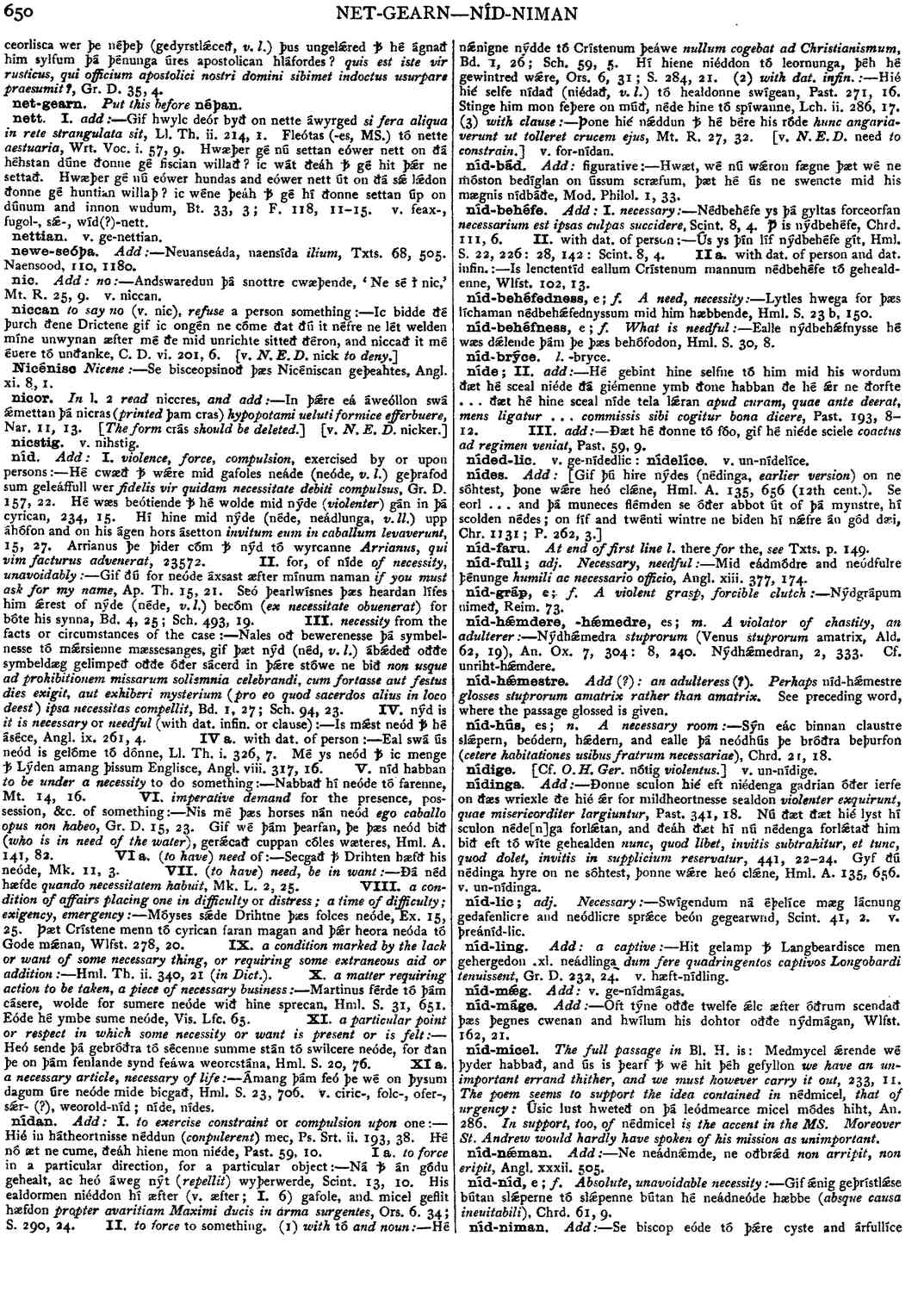nídan
-
Hié in hátheortnisse néddun
(conpulerent)
mec,- Ps. Srt. ii. 193, 38.
-
Hé nó æt ne cume, ðeáh hiene mon niéde, Past. 59, 10. I a. to force in a particular direction, for a particular object :-- Ná ꝥ án gódu gehealt, ac heó áweg nýt
(repellit)
wyþerwerde,- Scint. 13, 10.
- His ealdormen niéddon hí æfter (v. æfter;I.6) gafole, and micel geflit hæfdon propter avaritiam Maximi ducis in arma surgentes,
- Ors. 6. 34; S. 290, 24.
-
Hé nǽnigne nýdde tó Crístenum þeáwe
nullum cogebat ad Christianismum,
- Bd. 1, 26; Sch. 59, 5.
-
Hí hiene niéddon tó leornunga, þéh hé gewintred wǽre,
- Ors. 6, 31; S. 284, 21.
-
Hié hié selfe nídað (niédað,
v. l. )
tó healdonne swígean,- Past. 271, 16.
-
Stinge him mon feþere on múð, néde hine tó spíwanne, Lch. ii. 286, 17. [3) with clause :-- Þone hié nǽddun ꝥ hé bére his róde
hunc angariaverunt ut tolleret crucem ejus,
- Mt. R. 27, 32.
Bosworth, Joseph. “nídan.” In An Anglo-Saxon Dictionary Online, edited by Thomas Northcote Toller, Christ Sean, and Ondřej Tichy. Prague: Faculty of Arts, Charles University, 2014. https://bosworthtoller.com/55896.
Checked: 0